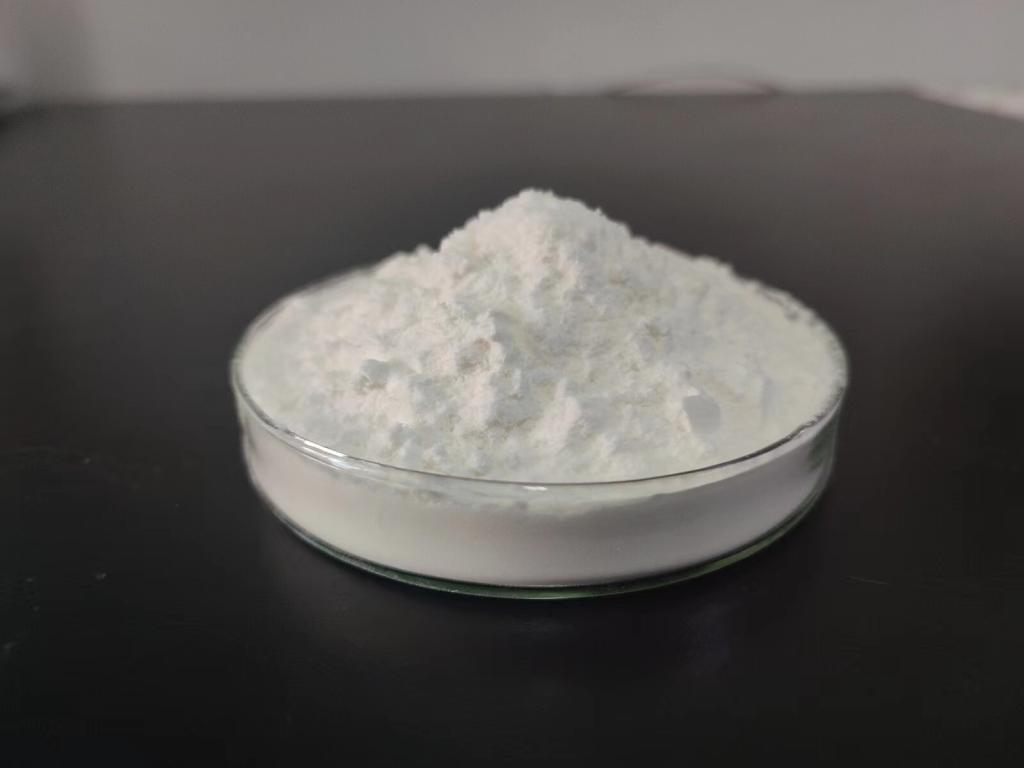Tel:+8618231198596

News
 CONTACT
CONTACT
 CONTACT
CONTACT
- Linkman:Linda Yao
- Tel: +8618231198596
- Email:linda.yao@dcpharma.cn
- Linkman:CHARLES.WANG
- Department:Overseas
- Tel: 0086 0311-85537378 0086 0311-85539701
News
Current Position:
Home >
News
>ε-Polylysine Hydrochloride in Promoting Plant-Based Meat and Alternative Proteins.
ε-Polylysine Hydrochloride in Promoting Plant-Based Meat and Alternative Proteins.
TIME:2023-11-16
Key Properties of ε-Polylysine Hydrochloride Relevant to Plant-Based Meat:
Antimicrobial Activity: ε-Polylysine hydrochloride exhibits broad-spectrum antimicrobial activity against bacteria, fungi, and some viruses. This property helps prevent microbial contamination in plant-based meat products.
Heat Stability: The antimicrobial activity of ε-Polylysine hydrochloride remains effective even at elevated temperatures, making it suitable for use in heat-processed plant-based products without compromising its efficacy.
Clean Label Status: As a naturally occurring compound, ε-Polylysine hydrochloride aligns with clean label preferences, offering a solution for manufacturers looking to meet consumer demand for transparent and recognizable ingredients.
Extended Shelf Life: By inhibiting the growth of spoilage microorganisms, ε-Polylysine hydrochloride contributes to the extension of the shelf life of plant-based meat products, reducing the risk of food waste.
Applications in Plant-Based Meat Production
The application of ε-Polylysine hydrochloride in plant-based meat production is diverse, addressing various challenges and contributing to the overall quality of these products.
Burgers and Patties: Incorporating ε-Polylysine hydrochloride into plant-based burger and patty formulations helps control microbial contamination during processing and storage, ensuring the safety and shelf life of these popular products.
Sausages and Hot Dogs: Plant-based sausages and hot dogs, which often require refrigeration or freezing, benefit from the antimicrobial properties of ε-Polylysine hydrochloride, maintaining microbial stability throughout storage.
Meatballs and Nuggets: Products like plant-based meatballs and nuggets, susceptible to microbial contamination during processing and handling, can utilize ε-Polylysine hydrochloride to enhance food safety.
Ground Meat Alternatives: Ground plant-based meat alternatives, commonly used in a variety of dishes, can benefit from the extended shelf life provided by ε-Polylysine hydrochloride.
Clean Label and Consumer Acceptance
One of the significant advantages of using ε-Polylysine hydrochloride in plant-based meat production is its alignment with clean label preferences. Clean label products, characterized by simplicity and transparency in ingredient lists, resonate with consumers seeking wholesome and minimally processed options. ε-Polylysine hydrochloride, as a natural antimicrobial derived from fermentation, complements the clean label trend, providing manufacturers with a tool to meet consumer expectations for transparency and authenticity.
Factors Contributing to Consumer Acceptance:
Natural Origin: Consumers are increasingly drawn to ingredients with a natural origin, and ε-Polylysine hydrochloride fits into this preference as a naturally occurring compound.
Transparency: Clean label products emphasize transparency, and ε-Polylysine hydrochloride's clear origin and function contribute to a more transparent ingredient list.
Safety and Efficacy: As a proven antimicrobial, ε-Polylysine hydrochloride contributes to the safety and stability of plant-based meat products, instilling confidence in consumers.
Sustainable Practices: The environmentally friendly nature of ε-Polylysine hydrochloride aligns with the broader push for sustainability, resonating with consumers who prioritize both personal health and the health of the planet.
Overcoming Production Challenges
The incorporation of ε-Polylysine hydrochloride in plant-based meat production addresses specific challenges faced by manufacturers in this rapidly evolving industry.
Microbial Stability: Plant-based meat products, lacking the intrinsic antimicrobial properties found in traditional meats, benefit from the microbial stability provided by ε-Polylysine hydrochloride.
Clean Label Preservatives: The demand for clean label preservatives is met by ε-Polylysine hydrochloride, offering a natural alternative to synthetic preservatives without compromising on effectiveness.
Processing Flexibility: ε-Polylysine hydrochloride's heat stability allows for its use in various processing methods, including cooking, baking, and high-temperature treatments, offering flexibility in plant-based meat production.
Consumer Safety: Ensuring the safety of plant-based meat products is paramount, and ε-Polylysine hydrochloride contributes to microbial control, reducing the risk of foodborne illnesses associated with microbial contamination.
Regulatory Considerations and Collaboration
The integration of ε-Polylysine hydrochloride into plant-based meat products requires consideration of regulatory guidelines and collaboration among stakeholders.
Regulatory Approval: Manufacturers must adhere to regulatory standards for the use of ε-Polylysine hydrochloride in food products, ensuring that its concentration meets safety requirements.
Collaboration with Regulatory Authorities: Engaging with regulatory authorities facilitates the approval process, and collaborative efforts ensure that the industry and regulatory bodies work together to establish clear guidelines.
Consumer Education: Collaborative efforts extend to consumer education about the safety and benefits of ε-Polylysine hydrochloride, fostering understanding and acceptance.
Research and Development Collaboration: Ongoing collaboration between researchers, food technologists, and regulatory experts is crucial for optimizing formulations, ensuring safety, and addressing any emerging concerns.
Future Directions and Innovations
As the plant-based meat industry continues to evolve, future directions and innovations involving ε-Polylysine hydrochloride may include:
Customized Formulations: Tailoring formulations to specific plant-based meat products, considering variations in texture, moisture content, and processing methods.
Integration with Other Natural Preservatives: Exploring synergies between ε-Polylysine hydrochloride and other natural preservatives to create multifunctional preservation strategies.
Global Adoption: Efforts to promote global adoption of ε-Polylysine hydrochloride, aligning with regulatory standards and meeting the diverse needs of consumers in different regions.
Enhanced Functional Properties: Research into enhancing the functional properties of ε-Polylysine hydrochloride, potentially contributing to texture improvement in plant-based meats.
Conclusion
ε-Polylysine hydrochloride stands at the forefront of innovation in plant-based meat and alternative protein production, offering a natural and effective solution to enhance shelf life, ensure food safety, and meet the clean label preferences of consumers. As the demand for plant-based proteins continues to grow, ε-Polylysine hydrochloride provides a valuable tool for manufacturers seeking to overcome challenges in microbial control without compromising on product quality. Through collaboration among researchers, industry experts, and regulatory authorities, ε-Polylysine hydrochloride is poised to play a pivotal role in shaping the future of plant-based meat, contributing to a more sustainable and diverse food landscape.
- Tel:+8618231198596
- Whatsapp:18231198596
- Chat With Skype







